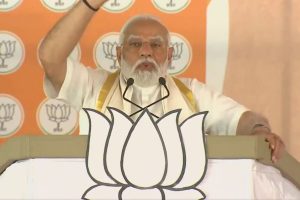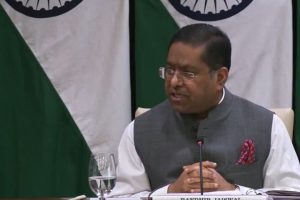The burden of expectation on President Joe Biden, after the offensiveness in behaviour reflected in policy animosity towards Europe by his predecessor Donald J. Trump, is immense.
Not only is he tasked with undoing the damage wrought on the USA’s core alliance with the European Union by Mr Trump’s actions as US president which undermined it severely, but there are many who will settle for nothing less than a “trans- Atlantic New Deal”.
It goes without saying, however, that to implement any of the detailed recommendations on reviving the US-Europe relationship which experts have been working on, it is the economic and political powerhouse of the EU, Germany, that will be the key.
Berlin has been the driving force behind the recently inked EU-China Comprehensive Agreement on Investment which is likely to be a long-term problem area for Washington which has been taking a tough line on China. From the EU’s point of view, relationships with both friends and foes are important and with German-French agreement on this approach, Europe’s desire for equidistance between East and West is apparent.
But President Biden has more than just the EU’s putative independent line on global issues, which has at least in part been an outcome of the transactional Trump presidency that left Europe high and dry on a host of issues, to negotiate. In Germany, for example, he may well have to deal with Armin Laschet, Chancellor Angela Merkel’s successor to lead the ruling Christian Democratic Party, making him the presumptive candidate for Chancellor in Germany’s September election.
Mr Laschet is under intense scrutiny for his “deferential” attitude towards Russian President Vladimir Putin and Syrian President Bashar al- Assad. Other prominent German politicians such as Governor Manuela Schwesig of Mecklenburg-Western Pomerania, a proponent of the controversial Nord Stream 2 pipeline that will bring Russian gas to Germany via her state, are also shaping attitudes in Europe.
Add to this mix a concerted effort by Paris to carve out a French-led European Indo- Pacific initiative. No wonder Washington is now promising “leadership with humility”.
What is working in President Biden’s favour, however, is that the days when Mr Putin had any traction with Berlin are long gone ~ Russia’s 2014 “annexation” of Crimea, its ongoing proxy war in eastern Ukraine, and the recent assassination attempt on Russian opposition leader Alexei Navalny have put paid to that.
According to experts, the German establishment is also thought to accept in private that Nord Stream 2’s political costs far outweigh any economic benefits. Also, France is aware that its strategic manoeuvres in the Indo-Pacific will need tacit US support. In sum, the EU is going to present the most important foreign policy challenge bar none for Washington in the months to come.











